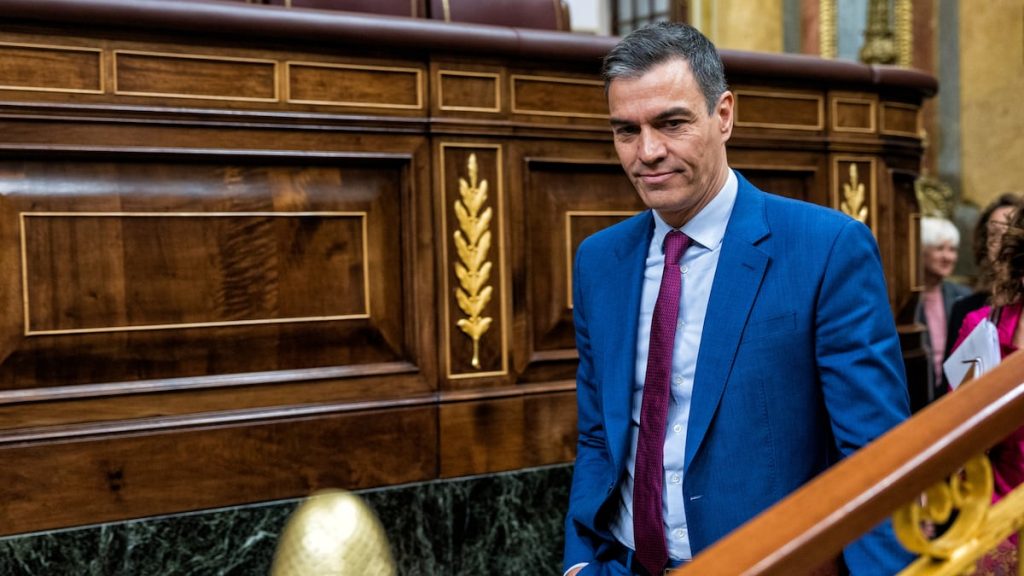Pedro Sánchez, the President of Spain, was deeply affected by the decision of a judge to investigate his wife, Begoña Gómez, after a complaint from the far-right group Manos Limpias. Feeling distraught, he wrote a letter contemplating resigning due to the “unprecedented attacks” on his wife. Despite this, his close aides were caught off guard by this sudden announcement. Members of his inner circle tried to persuade him to stay, but ultimately acknowledged that the decision was deeply personal and influenced by the emotional toll it took on his family. Sánchez requested time to reflect, leaving a significant impact on his political commitments, such as missing campaign events and possibly skipping a party meeting where key decisions were to be made.
The escalation of the situation came when a court case was opened based on the complaint filed by Manos Limpias, a group with a history of unsuccessful accusations against left-wing leaders. Sánchez, known for his resilience and determination, admitted that the attacks on his family had crossed a line, prompting him to consider leaving politics. This shift in attitude surprised many, as Sánchez had previously shown unwavering commitment to his role as a leader. Taking a break from his public duties, he decided to reflect on his future while seeking support from his family and close allies. The announcement of his possible resignation sent shockwaves through the government and the Socialist Party, with many expressing solidarity with Sánchez in the face of the personal turmoil he was experiencing.
In his public statement, Sánchez directly implicated political figures like Feijóo in the harassment of his wife, accusing them of colluding with far-right elements to target her. He emphasized the unjust nature of the investigation instigated by Manos Limpias, stating that his wife would cooperate with the legal process to defend her integrity. Sánchez condemned the baseless allegations spread by conservative media outlets and reiterated his wife’s intention to take legal action against those who propagated falsehoods. The pressure on his family, particularly his wife, fueled his contemplation of resigning, highlighting the emotional toll that political attacks can have on individuals and their loved ones.
Sánchez’s decision to take a temporary hiatus for introspection and consultation with his family underscored the personal dimension of the crisis he faced. As he navigated the delicate balance between political responsibility and familial protection, his close associates grappled with the unexpected turn of events. While the outcome of his deliberations remained uncertain, the outpouring of support from the progressive community hinted at a potential resurgence of solidarity in challenging times. Sánchez’s candid reflections on the impact of political attacks on his family shed light on the human aspect of leadership, where personal values and emotional resilience intersect with the demands of public office.
Ultimately, Sánchez’s struggle with the decision to continue in his role as President resonated beyond the immediate political sphere, revealing the complexities of navigating public life in the face of personal challenges. The intersection of family, politics, and moral integrity underscored the profound impact of attacks on loved ones in a highly polarized political climate. As Sánchez sought solace and clarity amidst the turmoil, his introspection raised questions about the cost of leadership, the resilience required to withstand relentless scrutiny, and the imperative to prioritize personal well-being amid the pressures of public office. In a time of uncertainty and heightened tensions, Sánchez’s journey towards a decision reflected a broader dilemma faced by leaders grappling with the delicate balance between duty and self-care in a demanding political landscape.















